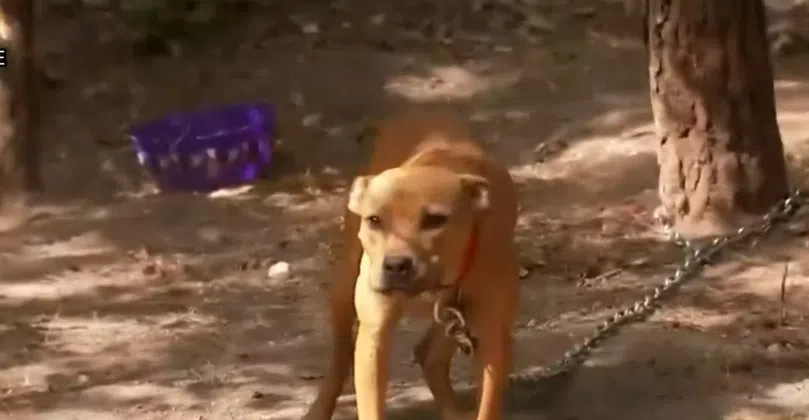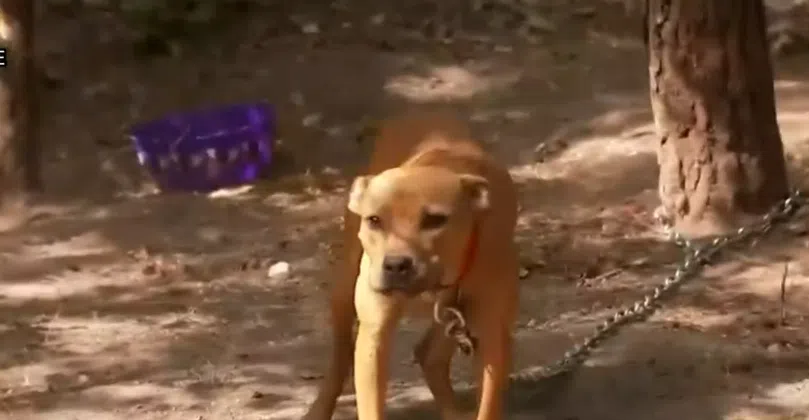
Knoxville city council members will discuss a total ban of leaving dogs chained up outside unsupervised Tuesday night.
The current city ordinance allows it, but the Knoxville Animal Welfare Alliance wants to change that, and brought the issue up to city leaders. The co-founder of the group, Julia Roy, said they followed the guidelines of what Johnson City put into law a few years ago.
“We know Knoxville is a very pet-friendly community. We’re supposed to be one of the most dog-friendly communities in the nation, and we feel like this is a good step towards that title,” Roy said.
The proposed ordinance change would also include a requirement of at least a 10-foot chain if a dog is chained up outside supervised. They’re also asking city council to make an age requirement stating a dog needs to be six months or older to be chained up outside. The proposed change would also require dogs to be at least two feet from any sidewalks or other walkways. Roy said the goal is to provide better animal care for dogs in Knoxville.
″We hope that it ends the continuous tethering of dogs in Knoxville and that we can improve animal care standards as far as proper shelter for outdoor dogs where dogs aren’t being left outdoors in severe inclement weather,” Roy said.
The only city councilperson opposed to the ordinance change is also the CEO of Young-Williams Animal Center Janet Testerman.
The animal center sent WVLT News a statement which stated the following:
In accordance with the positions of national animal welfare organizations, Young-Williams Animal Center does not support a total ban on tethering. Young-Williams Animal Center supports, instead, enacting higher sheltering standards to improve the quality of life for tethered and non-tethered pets. The best way to make a significant impact on the lives of outdoor pets is to require better care such as increased and more specific definitions of shelter, accessible food and water, adequate shade and humane standards of tethering, such as replacing fixed-point tethering with trolley systems that allow animals to exercise and enjoy enrichment activities.
A total ban could have serious, unintended consequences, including disproportionately affecting and punishing low-income pet owners, and would not address the standards of care for pets still kept outdoors.
An estimated 53% of residents in the City of Knoxville are renters. Many pet owners do not have the ability or resources to install a fence or other containment alternative. From many years of working with pet owners, we know that pets are most often tethered due to a lack of resources and/or education.
With stronger sheltering laws, we can save pets being kept in inhumane conditions and make a long-term impact by educating pet owners.Young-Williams Animal Center
If the change were to get passed and go into effect, the punishment for leaving dogs tethered unattended would start as fines. If the problem were to continue and the dog is left without proper food, water or shelter, that’s when animal control could step in and take the dog off the property.
Story Courtesy of WVLT.













